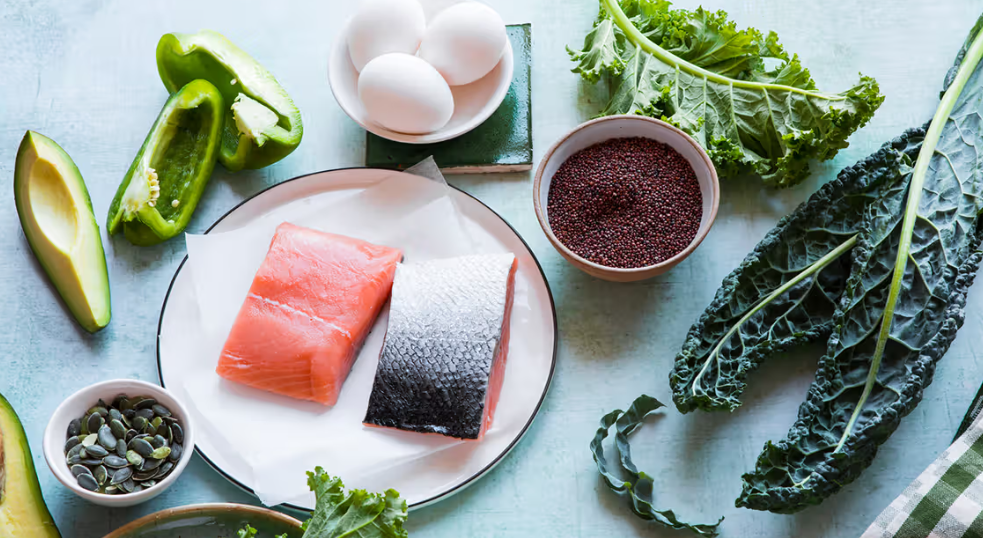Introduction to Plant-Based Nutrition
Are you ready to give your heart a boost while enjoying delicious meals? Embracing plant-based nutrition is more than just a trend; it’s a lifestyle choice that can transform your health. Research shows that incorporating more fruits, vegetables, whole grains, and legumes into your diet can significantly enhance cardiovascular wellness. Whether you’re fully committed to veganism or simply looking to add more greens to your plate, every little change counts towards creating a heart healthy diet. Let’s dive into the incredible benefits of plant-based eating and discover how you can nourish both your body and soul with vibrant foods!
The Benefits of a Plant-Based Heart Healthy Diet
Adopting a plant-based diet can be a game-changer for heart health. Research shows that this lifestyle lowers cholesterol and blood pressure, reducing the risk of heart disease.
Fruits, vegetables, whole grains, nuts, and seeds are rich in antioxidants. These compounds fight inflammation and oxidative stress—two culprits behind heart issues.
Fiber is another star player found in plant foods. It helps maintain healthy digestion while lowering bad cholesterol levels. This results in improved cardiovascular function over time.
Moreover, plant-based diets tend to be lower in saturated fats compared to meat-heavy diets. This shift can lead to better overall heart wellness.
Beyond physical benefits, going green often encourages mindfulness about food choices. The connection between what you eat and how it affects your body becomes clearer as you embrace more plants on your plate.
Key Nutrients Found in Plant-Based Foods
Plant-based foods are packed with essential nutrients that support heart health. Key players include fiber, which helps lower cholesterol levels and maintain stable blood sugar. This is crucial for reducing the risk of heart disease.
Antioxidants found in fruits and vegetables also play a significant role. They combat oxidative stress, inflammation, and can help protect your cardiovascular system. Colorful produce like berries, kale, and tomatoes are rich sources.
Healthy fats are another highlight of plant nutrition. Nuts, seeds, and avocados provide monounsaturated fats that promote healthy cholesterol profiles.
Moreover, legumes such as lentils and chickpeas offer protein without the saturated fat often associated with animal products. These nutrient-dense options keep you satisfied while supporting overall well-being.
Don’t forget about vitamins! Leafy greens bring an abundance of vitamins A, C, E, and K to the table—all vital for maintaining a strong heart.
How to Incorporate More Plants into Your Diet
Start your day with a green smoothie. Blend spinach, kale, or even avocado with fruits like bananas or berries. It’s an easy way to pack in nutrients.
For lunch, consider grain bowls. Quinoa or brown rice topped with roasted veggies can be both filling and colorful. Drizzle some tahini for extra flavor.
Snack on raw vegetables instead of chips. Carrots, celery sticks, and bell pepper slices pair well with hummus.
Dinner can feature plant-based proteins such as lentils or chickpeas. They’re versatile and rich in fiber. Add them to soups, stews, or salads for added heart health benefits.
Experiment with meatless Mondays by trying out new recipes each week. Explore different cuisines that focus on plants—think Mediterranean dishes full of herbs and legumes.
Keep fruit visible at home; it encourages snacking on healthy options rather than reaching for processed foods when cravings hit.
Delicious and Nutritious Plant-Based Recipes
Plant-based recipes can be both delightful and satisfying. One easy option is a quinoa salad packed with colorful veggies. Toss in cherry tomatoes, cucumbers, and bell peppers for a crunchy texture.
Try making a creamy avocado toast topped with radishes and microgreens. This simple dish bursts with flavor while providing healthy fats that support heart health.
For something warm, consider chickpea curry served over brown rice. The spices not only add depth but also boost your metabolism.
Don’t forget about smoothies! Blend spinach, banana, almond milk, and flaxseeds for a refreshing breakfast or snack.
These dishes are just the start of exploring plant-based cooking. Each recipe offers unique tastes that make eating green exciting and beneficial for your heart-healthy diet.
Tips for Maintaining a Balanced Plant-Based Diet
Maintaining a balanced plant-based diet requires planning and awareness. Start by diversifying your food choices. Include a variety of fruits, vegetables, whole grains, nuts, and seeds to ensure you’re getting all essential nutrients.
Pay attention to protein sources. Legumes like lentils and chickpeas are excellent options. Incorporate tofu or tempeh for added variety in meals.
Don’t forget healthy fats! Avocados, olive oil, and flaxseeds can enhance flavor while providing key nutrients that support heart health.
Experiment with herbs and spices for flavor without extra calories or salt. They not only make dishes enjoyable but also offer additional health benefits.
Stay hydrated as well; water is vital for overall health. Herbal teas can be refreshing alternatives too.
Keep an eye on portion sizes to avoid overeating even the healthiest foods. Balancing enjoyment with nutrition is essential in your plant-based journey.
Conclusion
Transitioning to a plant-based diet can be an empowering choice for your heart health. By embracing more fruits, vegetables, whole grains, and legumes, you not only nourish your body but also contribute to improved cardiovascular wellness.
The benefits are clear: lower cholesterol levels, reduced blood pressure, and a decreased risk of heart disease. The key nutrients found in plant-based foods—such as fiber, antioxidants, and healthy fats—play a significant role in supporting heart function.
Incorporating plants into your meals doesn’t have to be daunting. Start with small changes like adding leafy greens to smoothies or opting for vegetable-heavy stir-fries. Exploring the vast array of delicious recipes available can make this journey enjoyable rather than overwhelming.
A balanced approach ensures you’re getting all necessary nutrients while enjoying diverse flavors. Paying attention to protein sources and essential vitamins will keep you feeling great on this path.
Switching to a heart-healthy diet rich in plants is about making mindful choices that benefit both your well-being and taste buds. Embrace the vibrant world of plant-based nutrition; it’s not just good for your heart—it’s delightful too!

